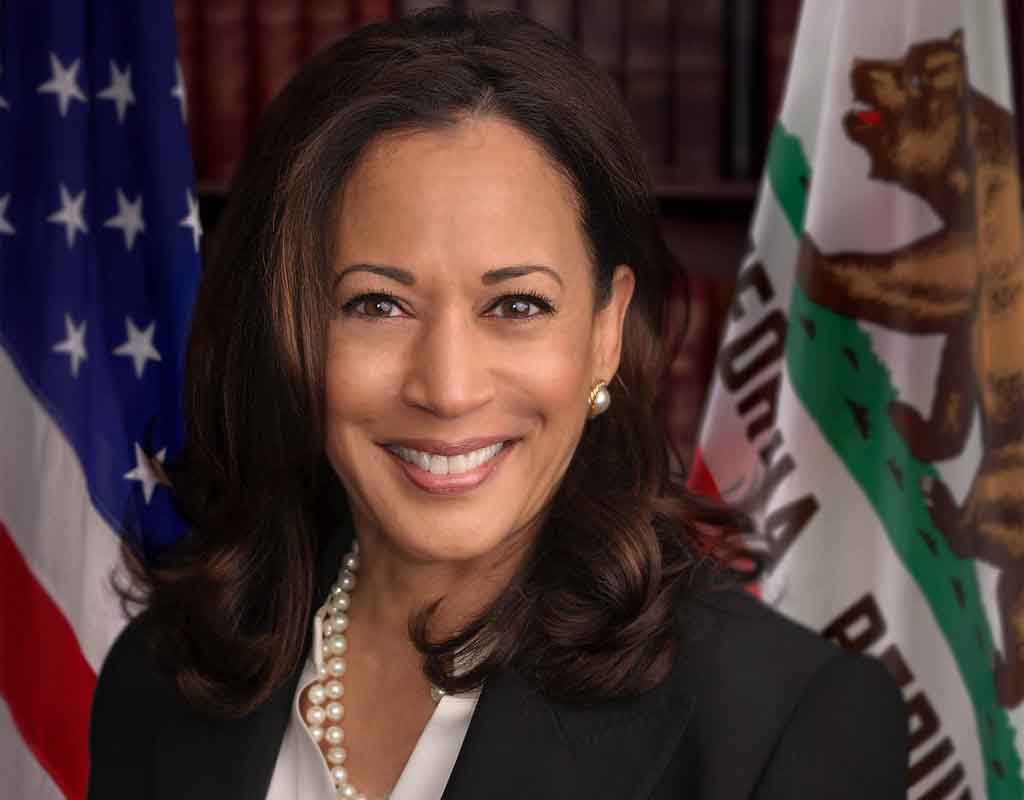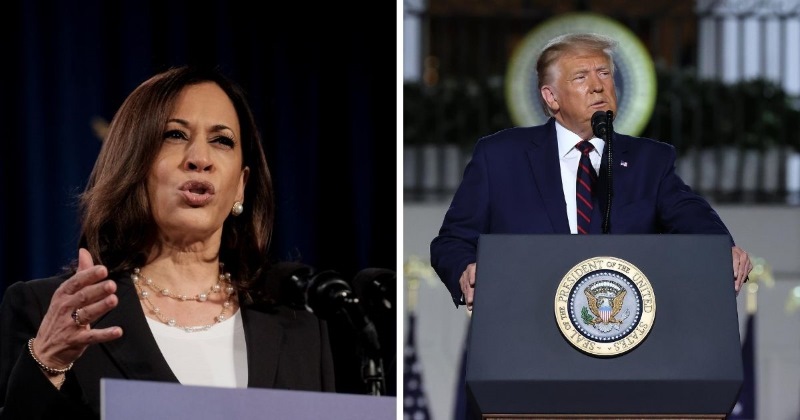Politics
Trump Criticizes Harris’ Racial Identity
Trump questions Harris’ identity former President Donald Trump recently sparked controversy by criticizing Vice President Kamala Harris regarding her racial identity. During his speech at the National Association of Black Journalists’ annual convention, he made unfounded claims about her identity. He stated, “I wasn’t aware she was Black until several years ago when she suddenly started identifying as such.” Trump further questioned her racial background, asking, “So I’m uncertain—is she Indian, or is she Black?” His remarks have drawn criticism for being insensitive and perpetuating confusion about racial identity.”
Allegations of Identity Inconsistency
Trump suggested that Harris has inconsistently identified herself, claiming she embraced her Black identity after previously identifying as Indian. He stated, “I respect both identities, but she clearly does not.” This comment raised eyebrows and ignited discussions about the validity of his claims on her racial identity. Many criticized his statements as divisive and unfounded. The controversy reflects ongoing debates about identity and representation in politics.
Trump’s comments about Harris’s racial identity were divisive and detracted from important discussions on representation, according to wsj online.
Harris’ Assertive Response
In response to Trump’s comments, Harris, who is the daughter of Indian and Jamaican immigrants, asserted her identity firmly. She grew up in a predominantly Black neighborhood, emphasizing the importance of being recognized as a Black woman. In a powerful statement from 2019, she declared, “I am Black, and I take pride in my identity. I was born Black, I will die Black, and I refuse to make excuses for anyone who does not understand that.” This reaffirmation highlights her lifelong commitment to her racial identity.
White House Reaction
White House Press Secretary Karine Jean-Pierre addressed Trump’s remarks during a daily briefing, labeling them as “repugnant and insulting.” She stated, “No one has the authority to dictate someone’s identity or how they choose to identify,” reinforcing the idea that respect for Harris’s identity is paramount. Jean-Pierre’s comments emphasize the administration’s support for the Vice President amidst the controversy.
Tensions During the Q&A Session
The Q&A session at the NABJ convention sparked tension as Trump faced tough questions from a panel of Black female journalists. Rachel Scott from ABC News challenged him directly, asking why Black voters should support him given his history of inflammatory remarks. In response, Trump dismissed her question as “atrocious” and criticized Scott for her approach, calling her “very rude.” His confrontational demeanor during the panel raised concerns about his willingness to engage with important issues facing the Black community. Critics highlighted his responses as indicative of a larger disconnect with the voters he aims to reach.

Kamala Harris’s Promotion Ignites Democratic Enthusiasm
Kamala Harris’s democratic enthusiasm at the beginning of the text: Vice President Kamala Harris’s promotion has ignited a surge…
Trump’s Growing Support Among Black Voters
Despite the backlash, polling indicates that Trump questions Harris’ identity has gained some support among Black voters this year. In light of this, he plans to hold a rally in Atlanta, targeting a key Democratic demographic to solidify his position ahead of the upcoming election. His claim at NABJ that he “cares deeply about the Black community” reflects his strategy to connect with voters ahead of the campaign.
NABJ’s Invitation to Harris
Harris received an invitation to the NABJ convention but opted for a virtual appearance due to scheduling conflicts. NABJ President Ken Lemon noted ongoing discussions for an in-person panel with Harris before President Biden withdrew from the race. The organization prioritizes providing its members with opportunities to engage directly with candidates. This approach reflects NABJ’s commitment to fostering accountability within political discourse. The ongoing engagement highlights the importance of dialogue between journalists and political candidates.
Future Engagements and Challenges
Lemon acknowledged NABJ members’ concerns about Trump’s participation but emphasized the importance of journalists hearing directly from candidates. The NABJ negotiates with Harris’s team for a future Q&A session, potentially in person or virtually. This engagement underscores the ongoing dialogue between politicians and the media. Harris aims to strengthen her support among Black, Latino, and young voters, making this engagement especially significant. The upcoming election creates an urgent need for candidates to connect with diverse audiences.
Claim your Barron’s subscription today at a 70% discount! Access the latest economic updates, in-depth analyses, insights from leading experts, 1,200 premium articles, and the Barron’s Digital Magazine. Don’t miss out on this incredible opportunity!

